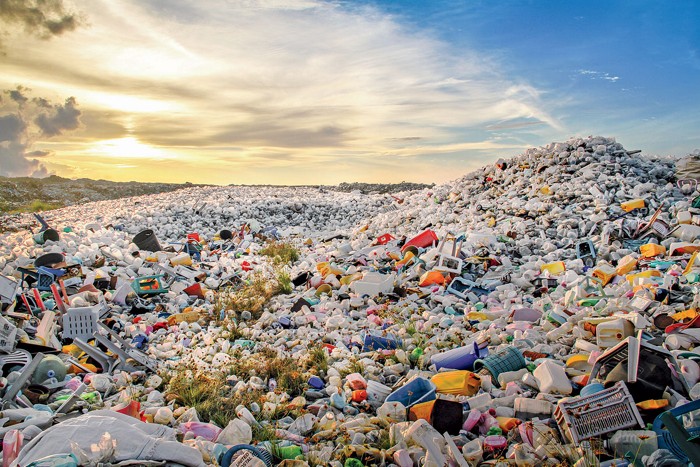Global Plastic Treaty: Tackling the Plastic Pollution Crisis (GS Paper 3, Pollution)

Context: Why a Global Plastic Treaty is Essential
- A new legally binding global treaty to address plastic pollution, including its impact on marine environments, is under negotiation by 170 countries in Busan, South Korea.
- This marks the fifth round of talks since 2022 when the UN Environmental Assembly (UNEA) agreed to finalize a treaty by 2024.
Need for a Plastic Treaty
- Plastic has become an essential part of modern life, but the explosive rise in plastic production has created a global crisis.
- By 2040, plastic production is projected to reach 700 million tonnes (mt) annually, according to the Organisation for Economic Co-operation and Development (OECD).
- However, less than 10% of plastic is recycled, and it can take 20 to 500 years to decompose.
- This massive accumulation of plastic waste has led to significant environmental and health challenges.
Harmful Effects of Plastics
- Environmental Impact: Plastic waste often ends up in rivers and oceans, where it degrades into microplastics and nanoplastics, which harm marine life and ecosystems. Plastic pollution is not just an ocean issue but affects freshwater and land ecosystems as well.
- Human Health Risks: The chemicals used in plastics can disrupt hormones, leading to serious health issues like cancer, diabetes, reproductive disorders, and neurodevelopmental impairments. Moreover, plastic waste in food chains can pose long-term risks to human health.
- Contribution to Climate Change: Plastic production is a major source of greenhouse gas (GHG) emissions, contributing 3.6% of global GHG emissions in 2020. The fossil fuel-based production of plastics makes it a significant driver of climate change, with 90% of emissions linked to plastic production.
Negotiations and Global Debate
The final plastic treaty could impose strict rules on plastic production, with potential measures such as:
- Banning specific plastic products and harmful chemical additives.
- Setting legally binding targets for plastic recycling and the use of recycled content in consumer goods.
Challenges in Negotiations:
- Countries have struggled to reach consensus on production caps and the language to define these caps.
- Oil-rich countries and major plastic producers have resisted limiting plastic production, fearing economic implications.
- Ambitious proposals, like Rwanda’s suggestion for a 40% reduction by 2040, face opposition from some countries, and discussions about financing the transition remain unresolved.
India’s Role in Plastic Pollution
- India is one of the largest contributors to global plastic pollution, accounting for 20% of the world’s plastic waste.
- India emits approximately 9.3 million tonnes of plastic waste annually, far exceeding the contributions of Nigeria (3.5 mt), Indonesia (3.4 mt), and China (2.8 mt).
- India took significant steps in addressing plastic pollution by banning single-use plastics in 2022, targeting 19 categories of plastic items.
- However, India's rapid economic growth and high population present ongoing challenges in managing plastic waste effectively.
India’s Position on the Global Plastic Treaty
India’s stance on the global plastic treaty has been clear and cautious:
- Opposition to Production Restrictions: India has rejected proposals that would impose production caps on polymer production. This is largely due to the importance of plastics in various industries, including agriculture, healthcare, and packaging.
- Focus on Financial and Technical Assistance: India has emphasized the need for the treaty to include provisions for financial support and technology transfer to developing countries. India seeks a framework that helps countries with limited resources to implement waste management and recycling programs effectively.
- Regulation of Harmful Chemicals: India insists that chemical regulations regarding plastics should be based on scientific evidence and should be managed on a domestic level, rather than imposing blanket bans.
- Waste Management Infrastructure: India has called for the creation of mechanisms to assess the infrastructural needs for safe waste management, as well as an evaluation of the financial resources required to implement effective waste management systems. India wants to ensure that there are adequate, predictable financial resources to address these challenges over the long term.
Conclusion: The Way Forward
- The global plastic treaty aims to establish clear and enforceable standards for reducing plastic pollution, with specific targets for recycling, waste management, and production caps.
- However, as the negotiations unfold, the divergent interests of countries—particularly those heavily reliant on plastic production—pose a challenge to reaching consensus.
- India, as one of the largest contributors to plastic pollution, has a critical role to play in shaping the treaty’s provisions.
- While India is unlikely to support drastic restrictions on plastic production, it is advocating for practical, scientific, and equitable solutions that balance environmental sustainability with economic growth.
- The success of the treaty will depend on the ability of countries to find common ground, particularly around issues like production caps, financing, and technology transfer.
- If successful, the treaty could mark a pivotal moment in the global effort to tackle plastic pollution and its harmful impact on human health and the environment.


